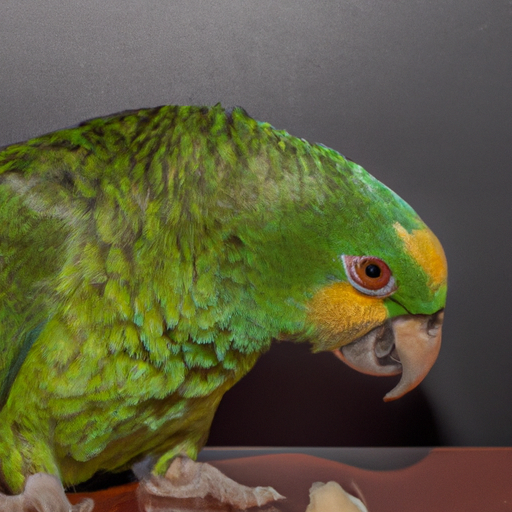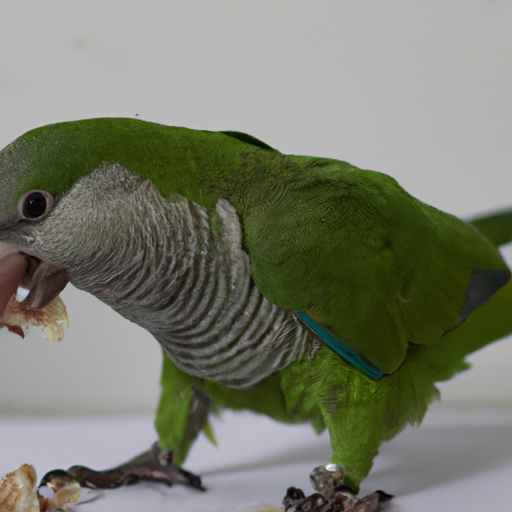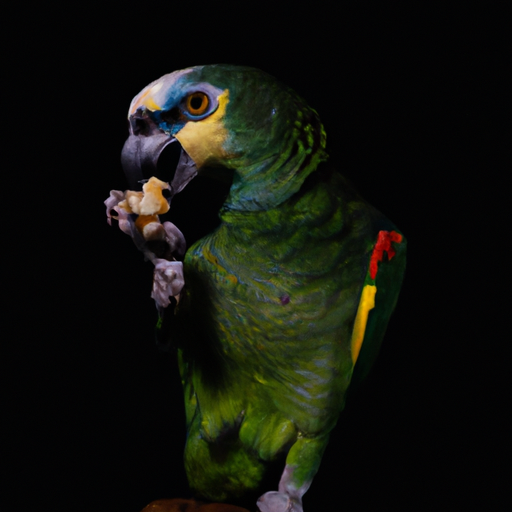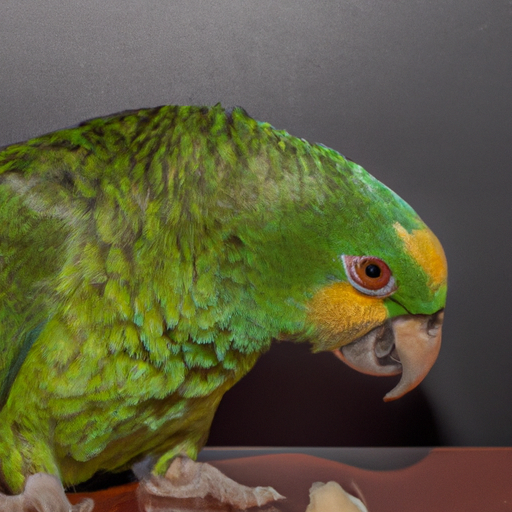Parrots, with their vibrant colors and intelligent eyes, are one of the most loved pet birds around the world. But what many pet owners may not realize is that these birds require a varied and balanced diet to stay healthy and active. Today, we will delve deeper into understanding what parrots need in their daily diet – a topic often overlooked, but of utmost importance to the health and well-being of your feathery friend.

Traditionally, many parrot owners have relied heavily on a diet of seeds for their pets. However, while seeds are an essential part of a parrot’s diet, they should not be the only thing your bird consumes, as they can be high in fat and low in essential nutrients. A seed-only diet can lead to health problems, such as obesity and malnutrition. Therefore, it’s crucial to diversify your parrot’s diet with a wide range of foods.
One major food group that should be incorporated into your parrot’s meal plan is fruits and vegetables. Parrots love fruits like apples, bananas, pears, and oranges. As for vegetables, they enjoy carrots, peas, corn, spinach, and broccoli. Fruits and vegetables are packed with vitamins and minerals that are good for your parrot’s health. Just make sure to wash them thoroughly and remove any seeds or pits as they can be harmful.

While fruits and veggies are important, protein is another crucial component of a parrot’s diet. Good sources of protein for parrots include cooked chicken, hard-boiled eggs, and legumes. However, these should only make up a small portion of the diet, around 10 to 15%.
Alongside protein, grains also play a significant role in a parrot’s diet. Whole grains such as brown rice, quinoa, and oats can offer your pet valuable nutrients and fiber. Additionally, you can feed your bird cooked pasta or bread in moderation.

Water is an essential part of any living creature’s diet, and parrots are no exception. Fresh, clean water should be available at all times. It’s also important to note that parrots should not be given alcohol, caffeine, chocolate, avocado, or any food high in sugar or salt, as these can be toxic for them.
Lastly, remember that each parrot species may have slightly different dietary needs. For example, an African Grey Parrot may require more calcium in their diet compared to other species, so it’s important to research and understand the specific needs of your parrot species.
Feeding your parrot a balanced and varied diet will not only keep them healthy but will also contribute to their overall happiness. It’s an investment that pays off in the long run, as a well-nourished parrot is more likely to live a long, happy, and active life. So, the next time you reach for that bag of birdseed, remember to mix it up a little – your parrot will thank you for it!

